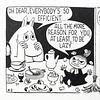Take a photo of a barcode or cover
Graphic: Chronic illness, Death, Gore, Gun violence, Terminal illness, Violence, Religious bigotry
Moderate: Emotional abuse, Suicide
Minor: Adult/minor relationship, Sexual violence
Graphic: Death, Gun violence, Suicide, Terminal illness, Medical content, Grief
Moderate: Confinement, Infidelity, Rape, Sexual assault
Minor: Confinement, Violence, Blood
Graphic: Death, Terminal illness
Minor: Gun violence, Rape, Religious bigotry
I don't usually read post-apocalyptic fiction, and I didn't really know much before reading this book, so I was unpleasantly surprised to discover that the whole premise of this book was exploring society after a devastating pandemic. Nevertheless, I read on, and honestly this book was not what I expected. The moments of tension were interrupted with chapters of character study, which I found a little strange. The plot seemed to go nowhere, and the climax of the book fell a little flat.
But I don't think the point of the book was to deliver a gripping plot. To me, the point seemed to be to explore what humanity really is. It's interesting to see how the individual character studies of the pre-pandemic world compare to the more sweeping generalizations about the post-apocalyptic human society. Both are done really well–in both cases, I got the sense that humans have the capacity for terrible evil as well as kindness.
Even though this book wasn't what I was expecting at all, I loved it. The language is beautiful, and I especially loved the character of Miranda, who I think is written the best out of all of them. This was a wonderful, interesting story.
Graphic: Confinement, Death, Infidelity, Violence, Grief, Medical trauma
Moderate: Gun violence, Suicide, Medical content
Minor: Adult/minor relationship, Mental illness
Graphic: Death, Gun violence, Medical content, Kidnapping, Grief
Moderate: Suicide, Violence
Minor: Mental illness
Graphic: Death, Gun violence, Infidelity, Terminal illness, Violence, Medical content, Kidnapping, Grief
Moderate: Cursing
Minor: Domestic abuse, Pedophilia, Sexual assault, Suicide
Graphic: Terminal illness
Moderate: Death, Gun violence, Violence
Minor: Child abuse
Hace unos días, arranqué a leer Station Eleven (Estación Once), una novela de ciencia ficción escrita por la canadiense Emily St. John Mandel que me deslumbró por completo. En términos generales, el libro toma dos líneas temporales: por un lado, el momento en el que se desata una pandemia brutal que acaba con el 99% de la población mundial y, por otro, la realidad de los sobrevivientes veinte años después del colapso de la civilización tal cual como la conocían. La novela fue publicada hace seis años, pero por razones obvias ha vuelto a ser bastante popular en lo que va del 2020. Cuando empecé a ver que la recomendaban en internet, algo que me llamó la atención fue el hecho de que los protagonistas fueran actores y músicos que viajaban por pueblitos post-apocalípticos montando obras de Shakespeare y tocando música clásica; no sé, me pareció una idea original y además me encantan las historias en las que hay artistas.
Si bien el contexto en el que transcurre Station Eleven es el de una pandemia y sus consecuencias, no diría que el libro trata sobre eso, sino más bien sobre los vínculos humanos que se van desarrollando a partir de las circunstancias. Se trata sobre la muerte, el duelo y, por ende, la vida. Es una historia realmente profunda que toca temas universales con los que todos podemos sentirnos identificados o al menos llegar a comprender. Mandel pone el foco en los personajes, en el factor humano: "el infierno es la ausencia de las personas que quieres", escribe la autora, una frase en la que probablemente muchos nos veamos reflejados a causa del aislamiento por el Covid-19. Es cierto que a lo largo de la novela se puede apreciar una nostalgia por la electricidad y la tecnología, el anhelo de ese mundo anterior ya casi ajeno, pero queda claro que lo fundamental son los vínculos, las personas, tenerse el uno al otro.
Graphic: Death, Terminal illness
Moderate: Violence
Now reading this at 21, it is still one of the most beautiful and thoughtful books I've ever read. But also reading it during the Covid-19 pandemic was especially hard and at times I hated the book. The words that soothed me at 15, haunted me now. 3 million people have lost their lives to a disease that ripped through the world, and a year on we still have not recovered. Whatever happens now, the world will never be the same. As with every apocalypse, we have lost something to this pandemic - lives, innocence, trust.
This review is rambling but I don't know how to look at this book through the lens of fantasy anymore. The Georgia flu is fictional and far more deadly than Covid-19 (thank fuck), but that was never the point of Station Eleven. Station Eleven is about what persists, rather than what we've lost.
Doctor Eleven outlives his creator, Arthur's life is preserved through magazine clippings, the Museum of Civilisation is lovingly preserved, lights begin to turn on in the darkness.
Graphic: Child death, Death, Medical trauma, Death of parent
Moderate: Gun violence, Pedophilia, Suicide, Violence, Murder
Minor: Sexual assault, Torture, Stalking






